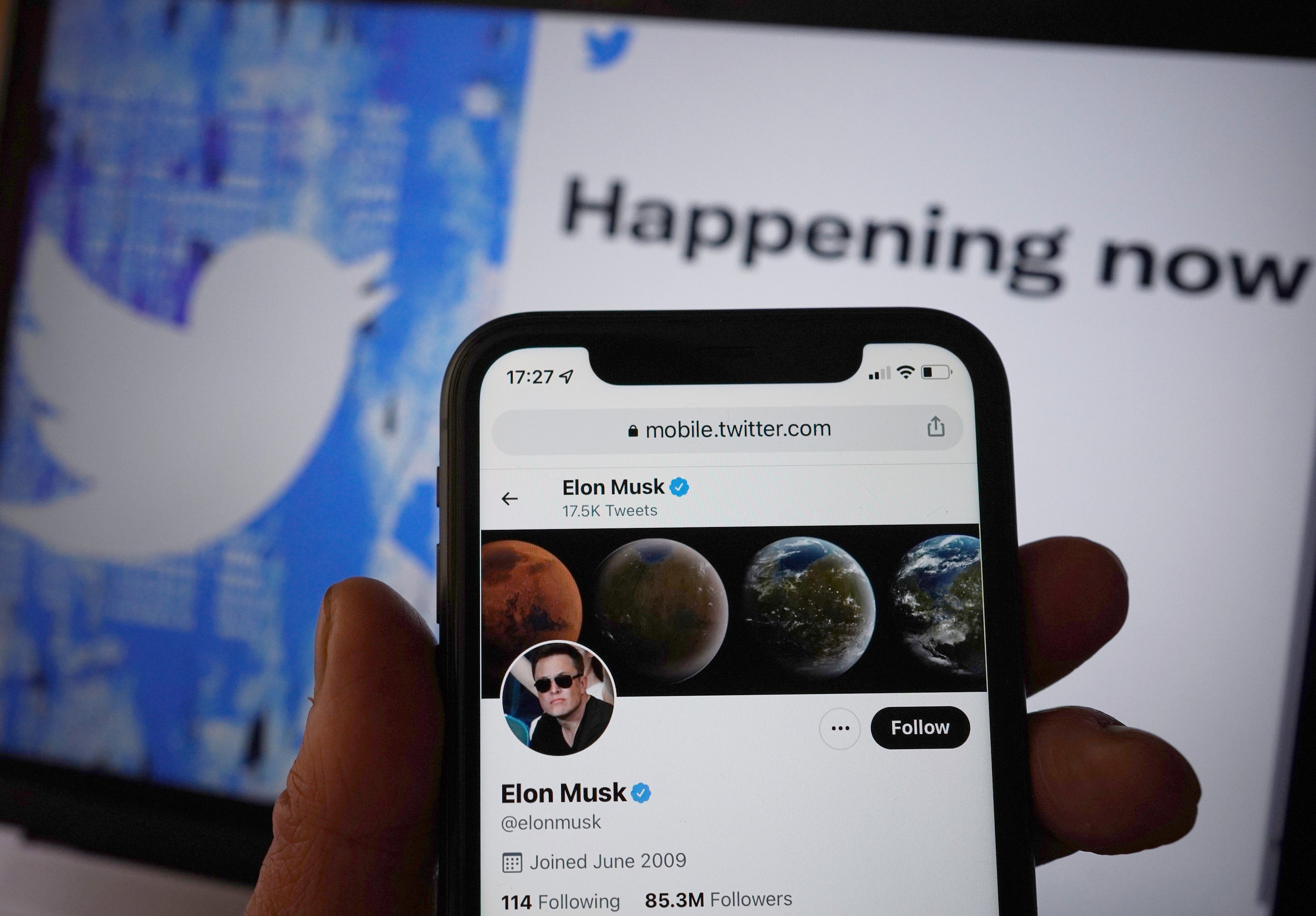Elon Musk has an agenda for Twitter – and it’s not free speech
Owning Twitter grants Musk a power few of his contemporaries have: the power to decide what’s worth paying attention to


Today marks my ten year anniversary of being on Twitter.
In 2012, I, like many undergraduates in the post-financial crash economy, struggled to figure out what they wanted to do with the rest of their lives, and perhaps, more critically, how I was going to pay off my student loans. It was at one of these graduate employment talks that a second-year consultant – who had boasted about his dreamy life in the city, closing million-pound deals and living in a high-rise flat in Notting Hill – gave me advice that would be unexpectedly defining over the following decade.
“Join Twitter,” he said. “It’s a really great way to connect with employers and get their attention”. Though I didn’t manage to land the high-paid city graduate scheme I wanted, his advice wasn’t incorrect. It was through Twitter that I – someone with no media connections or deep pockets of familial wealth – got my first freelance commissions, landed my first jobs, travelled abroad and eventually, built my own business. It was through a series of Twitter conversations that this column was commissioned.
Over the past decade, Twitter as a platform has changed in its significance and its purpose. While it might have started off as a big message board, and, for me, a useful way of aggregating news, it would be laughable to describe the platform as such now. Instead, even its active users will likely admit that Twitter acts more like an accelerator of misinformation, a crucible of harassment and hate speech, and, certainly, a place you’re much more likely to find cryptocurrency scams than career opportunities.
Even in relation to its purported purpose – to provide a ‘public square’ for free expression – Twitter falls short, not least in its frequent censoring of political dissidents (especially Palestinians). In simple terms, Twitter as it exists broadly fails to deliver any of its stated goals and ambitions, and constantly rolls out features that exacerbate its existing problems. Even developers who work at Twitter have called it “broken” beyond repair.
This might explain why some are enthusiastic for Elon Musk to buy Twitter for over £40 billion. Musk, who is a prolific user of the platform, has voiced overtures about fixing Twitter’s so called “free speech” problem, believing that under his watch, he can make it a “politically neutral” space in which all expression is free, and conducive conversations can finally take place. Yet, because Musk hasn’t really elaborated on any of these plans, nor has he responded to considered criticism of how his proposals would work even on a technological level, the discourse is locked in yet another endless culture-war debate. Will Musk actually bring about the imagined “free speech” utopia his die-hard followers dream of, or will he open the floodgates to overt fascists who will openly exploit the platform to harass, dox and target their opponents?
The truth will be more mundane: it’s unlikely that he’ll implement anything radical enough to actually change Twitter in a significant way. One reason for this comes down to the sheer work of it all. As Sunny Hundal noted recently, it’s difficult work to run any kind of online community, let alone one that has hundreds of millions of users existing in an unconfined space.
It’s one reason why Musk may be startled by the realities of trying to create a libertarian free speech platform. Not only will he have to deal with the laws and data regulations of other countries, but he’ll also have to deal with the realities of managing users who are deliberately trolling, doxxing, trying to destabilise online communities, or, indeed, trying to run scams and “phishing” traps. Anyone who has ever been a moderator of a Facebook group or forum knows how difficult and time-consuming this task can be, but, more importantly, how much of a necessity moderation is if you’re trying to get any kind of group to run effectively.
To keep up to speed with all the latest opinions and comment, sign up to our free weekly Voices Dispatches newsletter by clicking here
Second, and perhaps more importantly, Musk probably doesn’t care about Twitter at all. Sure, he enjoys using it, and he probably likes that his tweets are powerful enough to move markets in ways that favour the Tesla stock price. His interest in Twitter may be more aligned to his interests in roads and tunnels – namely, he understands the long-term value of infrastructure and, crucially, what it means to control it.
If we understand Twitter not as a “social media platform”, but rather, as a key element of digital infrastructure – one that manages information, and crucially, has an oversized influence on what classifies as “important” news – then owning Twitter grants Musk a power that few of his contemporaries have: the power to decide what’s worth paying attention to.
Let’s call this what it actually is – a media buyout. But, unlike billionaires who purchase newspapers and TV channels to hold onto and exert influence, Musk’s Twitter purchase goes further – effectively purchasing the entire infrastructure that determines how, and crucially what information gets distributed.
Whether Twitter becomes “better” or “worse” is secondary. What should be more alarming to all of us – especially those who care about free speech – is the fact that another billionaire owns a significant portion of the internet, and will get richer, regardless of whether or not we choose to participate.
Join our commenting forum
Join thought-provoking conversations, follow other Independent readers and see their replies
Comments
Bookmark popover
Removed from bookmarks